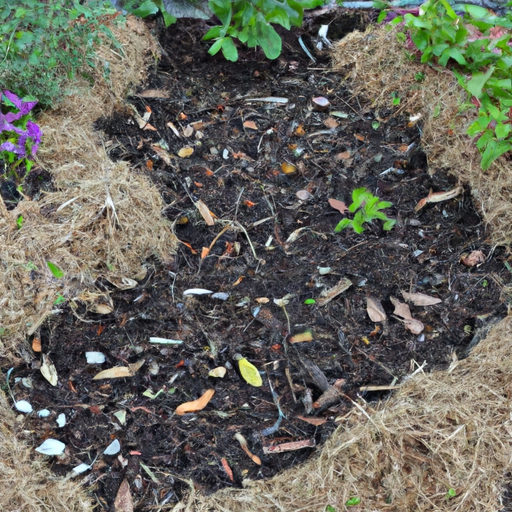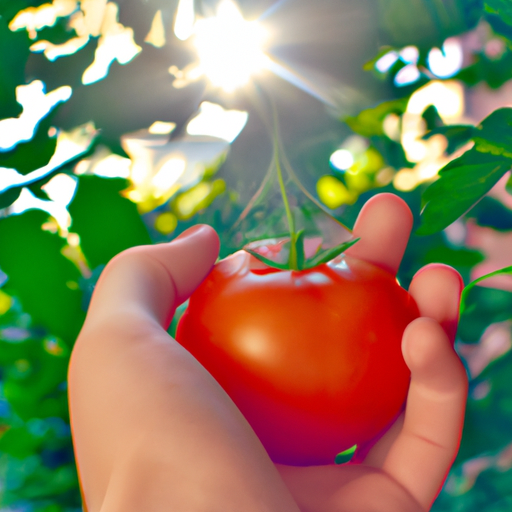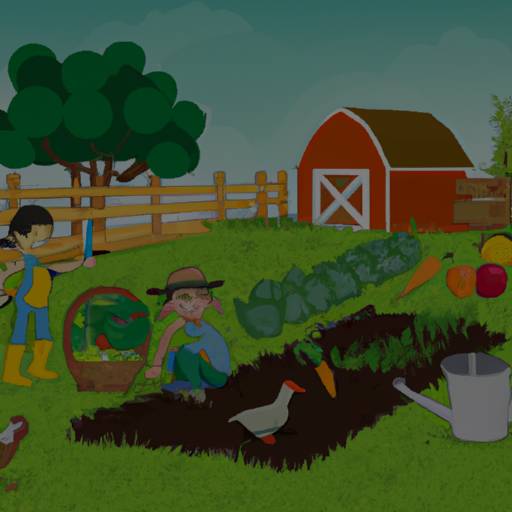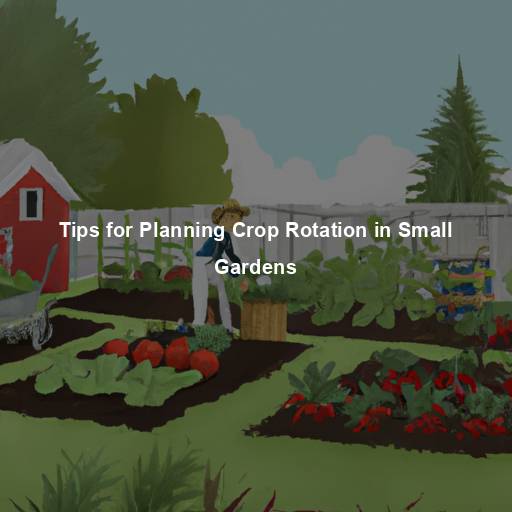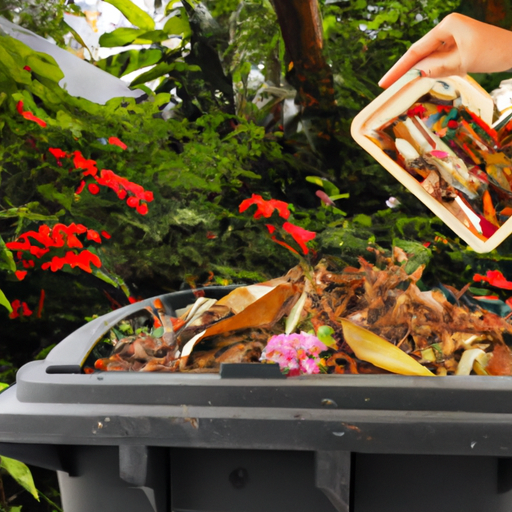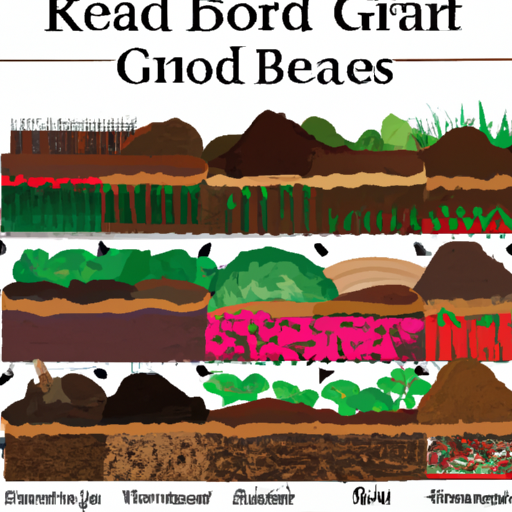Hello fellow gardeners! As a Master Gardener, I am always looking for ways to improve the health and vitality of my soil.
One of the most effective methods I have found is organic mulching. Mulch provides so many benefits to your plants and soil. It helps retain moisture, suppresses weeds, moderates temperature fluctuations, and adds nutrients as it breaks down over time.
However, not all mulches are created equal. In this article, I will share with you some tips on how to choose the best organic mulch for your garden and how to properly apply it for maximum benefits.
So grab your gloves and let’s get started!
Benefits Of Organic Mulching
Imagine having a garden where you don’t have to spend hours pulling weeds, watering frequently or worrying about the soil temperature.
Well, it’s possible with organic mulching!
Not only does this process provide an aesthetically pleasing look to your garden but also offers several benefits that can result in healthier plants and soil.
Nutrient cycling is one of the most significant advantages of organic mulching as it helps keep essential nutrients in the soil by decomposing plant material into organic matter.
Additionally, weed suppression becomes more effective when using organic mulch, which reduces manual labor significantly.
Furthermore, water retention is another benefit that cannot be ignored; the layer of mulch acts like a sponge that retains moisture for longer periods while regulating soil temperature, keeping roots cool during hot summer days and warm during winters.
Incorporating organic mulching techniques will undoubtedly create a healthy environment for your plants to thrive without being subjected to harsh chemicals or excessive maintenance requirements.
Types Of Organic Mulch
Now that we know the benefits of using organic mulch, let’s dive into the different types available.
There are various DIY mulch options such as grass clippings, shredded leaves, and pine needles. These materials can be easily obtained from your yard or local park, making it a cost-effective solution for those on a budget.
Mulching for weed control is also an important factor to consider when choosing the right type of organic mulch. Materials like wood chips and bark nuggets not only suppress weeds but also retain moisture in the soil.
It’s essential to note that some types of mulch may take longer than others to decompose fully, so make sure to choose accordingly based on your gardening needs.
Choosing The Right Mulch For Your Garden
As the saying goes, ‘not all mulches are created equal’. Choosing the right mulch for your garden is crucial to ensure it provides maximum benefits. There are various options available in the market but not all of them might suit your needs.
As a Master Gardener, I recommend focusing on biodegradable options that will decompose and enrich your soil over time. Some cost-effective choices include grass clippings, leaves or straw which can be easily obtained from your yard or local farm.
Here are three things to consider when choosing the right mulch for your garden:
1. Know Your Soil – Different plants have different requirements, so it’s essential to know what kind of soil you have before choosing a mulch type.
2. Consider Your Garden’s Aesthetic – Mulching also serves an aesthetic purpose, so choose something that complements your garden’s overall look.
3. Evaluate Maintenance Needs – Some types of mulch require more maintenance than others; therefore, factor this into account while making a choice.
By selecting the appropriate option based on these factors, you’ll guarantee healthy growth for your plants while keeping costs low and minimizing environmental impact through sustainable gardening practices.
Applying Mulch For Maximum Benefits
Now that you have chosen the right mulch for your garden, it’s time to apply it for maximum benefits. But before we get into that, let’s talk about the benefits of no till farming and how they relate to organic mulching.
No till farming is a method where farmers do not disturb the soil by plowing or tilling it. This technique helps maintain healthy soil structure and promotes biodiversity in the soil. When combined with organic mulching, this can lead to healthier plants and higher yields.
Now onto applying mulch! One of the biggest benefits of using mulch is reducing water usage in your garden. Mulch acts as a barrier between the sun and soil, preventing moisture from evaporating too quickly. Additionally, when rain does fall, the mulch helps retain moisture in the soil instead of letting it run off or evaporate.
To apply mulch correctly, first make sure the ground is well-watered so that the mulch sticks better. Then spread out an even layer of 2-3 inches thick over your entire garden bed (avoiding stems or trunks). Finally, use a rake to smooth out any uneven spots.
By implementing these tips on choosing the right mulch and applying it properly, you’ll be able to enjoy all of its benefits while also promoting sustainable practices like no till farming. Remember that taking care of our soil means taking care of our planet as well!
Maintaining Your Mulch Throughout The Season
Oh, the joys of mulching! It’s like wrapping your plants in a warm blanket and tucking them in for the night. But just like any good parent, you must check on your little ones to make sure they’re still cozy throughout the season.
Here are three tips to keep your mulch coverage intact and prevent erosion:
1. Fluff it up – As time goes by, your mulch may start to compact and lose its insulating properties. Grab a rake or hoe and gently loosen it up every few weeks.
2. Add more as needed – Depending on rain levels and other environmental factors, your mulch may wear away faster than expected. Keep an eye out for thin spots and add an extra layer to maintain that protective barrier.
3. Watch those slopes – If you have a hilly yard or garden bed, be especially careful with your mulch application. Heavy rains can cause erosion and leave your plants exposed. Consider adding some rocks or other landscaping materials to stabilize the soil before applying your mulch.
Remember, healthy soil equals happy plants! By following these simple maintenance tips, you’ll ensure that your organic mulching efforts will pay off all season long without having to worry about preventing mulch erosion or covering bare patches again soon.
Frequently Asked Questions
Can You Use Different Types Of Organic Mulch Together?
Yes, you can certainly use different types of organic mulch together!
Combining mulch types has many benefits – it creates a diverse environment for microorganisms and insects to thrive in, which leads to healthier soil. Additionally, mixing different mulches helps prevent weed growth better than using just one type alone.
However, it’s important to keep in mind the specific needs of your plants when selecting which mulches to combine. For example, acidic pine needles might be great for blueberries but not so much for tomatoes that prefer more neutral pH levels.
As a Master Gardener, I always recommend experimenting with different combinations to see what works best for your particular garden.
How Often Should You Replace Your Mulch?
As a Master Gardener, one of the questions I get asked often is how often to replace mulch.
Well, it depends on the type of organic mulch you are using and its benefits.
Some types like straw or leaves break down quickly and need replacement every season while others like wood chips can last up to three years.
The key is to keep an eye on your mulch and replenish as needed.
Remember that a well-mulched garden not only looks beautiful but also helps retain moisture, suppress weeds, and improve soil health by adding nutrients over time.
So don’t skimp on mulching; choose from different types of organic mulch available in your area for healthier plants and better yields!
Can You Use Leaves As Mulch?
Yes, using leaves as mulch is a great idea!
Leaf mulch benefits your soil in many ways. Not only does it add nutrients to the soil as it decomposes, but it also helps retain moisture and suppresses weed growth.
Plus, using fallen leaves from your own yard is a free and easy way to create organic mulch. Be sure to shred the leaves first for optimal results.
Remember that while leaf mulch can be beneficial, it should not be used excessively or piled too deeply without being turned regularly, as this can lead to problems with fungus and pests.
Is It Necessary To Remove Weeds Before Applying Mulch?
If you’re wondering whether it’s necessary to remove weeds before applying mulch, the answer is: it depends.
Mulching benefits your soil by retaining moisture, reducing erosion, and suppressing weed growth.
However, if there are already existing weeds in the area where you plan to apply mulch, it’s important to use proper weed control techniques before laying down any organic material.
This ensures that the weeds won’t continue to grow under the mulch and take away nutrients from your plants.
So while removing all weeds may not be necessary, taking care of them beforehand can make a big difference in maintaining a healthy garden.
Can Mulching Help Prevent Erosion?
Mulching is a great way to prevent erosion and promote soil conservation in your garden.
By adding an extra layer of protection to the topsoil, mulch helps retain moisture and prevents runoff that can lead to erosion.
It also reduces weed growth, which can further help keep soil intact.
When choosing a mulching material, consider using organic options like straw or compost, as they will break down over time and add nutrients back into the soil.
Remember to apply enough mulch so that it forms a thick layer but doesn’t suffocate your plants.
With these tips, you can enjoy healthier soil while preventing erosion at the same time!
Conclusion
As a Master Gardener, I can confidently say that organic mulching is one of the best things you can do for your soil. And yes, you can absolutely use different types of organic mulch together! In fact, combining materials like leaves, grass clippings and wood chips will create an even more diverse environment for beneficial microorganisms to thrive in.
When it comes to replacing your mulch, it’s important to keep an eye on its condition. As it decomposes over time, it will become less effective at retaining moisture and suppressing weeds. Depending on the type of mulch and your climate, you may need to replace it every 6-12 months.
And don’t overlook the power of using fallen leaves as mulch – they’re free and full of nutrients! Just be sure to shred them first so they don’t mat down and block water from reaching your plants.
Removing weeds before applying mulch isn’t necessary, but doing so will prevent them from eventually poking through and competing with your desired plants.
Finally (and here’s where my hyperbole comes in), using organic mulch can help prevent erosion by creating a protective layer over your soil. So not only does it improve soil health, but also helps protect against environmental damage.
Happy gardening!
